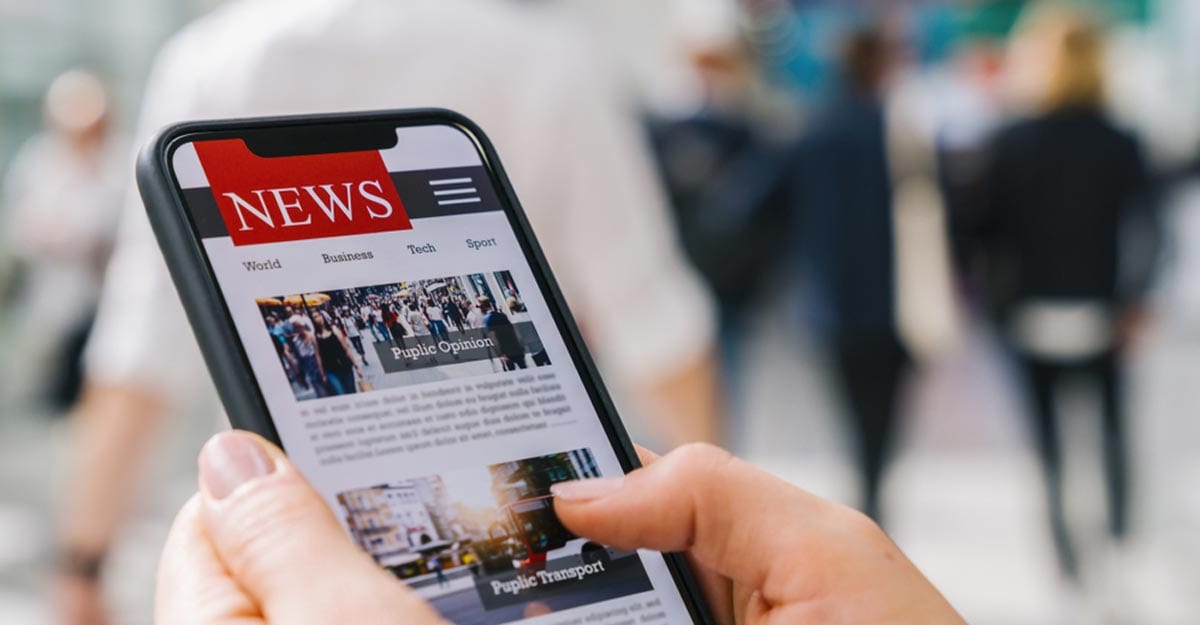Not known Factual Statements About International News Online
Wiki Article
The Best Guide To International News Online
Table of ContentsLittle Known Questions About International News Online.Our International News Online PDFsFacts About International News Online RevealedThe Ultimate Guide To International News Online
Some social media websites in spite of having fairly little overall audiences stand out for having high shares of individuals that on a regular basis go to the website for information. On the various other hand, just 15% of Snapchat users consistently obtain news on the app.No social media website consisted of here has routine news consumers that are a lot more likely to be Republicans or lean Republican, though there is no substantial partisan difference among information consumers on Facebook, X or Nextdoor.
journalists, yet except the public, June 27, 2022 Information on Twitter: Eaten by A Lot Of Individuals and Relied On by Lots of. International News Online, Nov. 15, 2021 Greater than eight-in-ten Americans get news from electronic tools, Jan. 12, 2021 Measuring Information Consumption in a Digital Period, Dec. 8, 2020 Lots Of Americans Get News on YouTube, Where News Organizations and Independent Producers Prosper Alongside, Sept

And in the united state, only around a 3rd think social media declares for freedom the smallest share amongst all 19 nations surveyed. In eight countries, those who believe that the political system in their country enables them to have an impact on national politics are likewise most likely to say that social media sites is an advantage for freedom.
Those that watch the spread of false information online as a major danger to their country are much less likely to state that social media sites is an advantage for freedom, compared with those that view the spread of misinformation online as either a small danger or otherwise a risk at all.
This pattern is obvious in 8 other nations also. Sights also differ by age. Older adults in 12 countries are much less most likely to state that social media sites is a good idea for democracy in their nation when compared to their younger counterparts. In Japan, France, Israel, Hungary, the UK and Australia, the gap in between the youngest and oldest age groups is at the very least 20 percent factors and ranges as high as 41 points in Poland, where almost nine-in-ten (87%) more youthful grownups claim that social media sites has actually been an advantage for democracy in the nation and only 46% of adults over 50 state the exact same.
read this
The 10-Minute Rule for International News Online
Throughout the six concerns tested, few often tend to state they see no adjustments due to increased connectivity instead seeing points altering both positively and negatively and typically both at the same time. A mean of 84% say Go Here technological connection has made individuals less complicated to manipulate with false info and reports one of the most amongst the 6 concerns evaluated.In the majority of countries, those that assume social media has made it easier to adjust individuals with misinformation and rumors are likewise more likely to think that social media has made people a lot more informed. When it comes to national politics, the net and social media are generally seen as disruptive, with a typical of 65% saying that individuals are now a lot more split in their political point of views.

As an example, in South Korea, 90% of those under age 30 say social media makes people easier to manipulate, compared to 65% of those 50 and older. (Remarkably, U.S.-focused study has located older grownups are most likely to share misinformation than younger ones.) Individuals with even more education are also commonly extra likely than those with much less education and learning to say that social media sites has actually led to individuals being easier to control.
6 Simple Techniques For International News Online

In Sweden, you could look here Japan, Greece and the Netherlands, around eight-in-ten or even more share this view, while in Malaysia, a smaller majority (56%) claims the exact same. Younger adults have a tendency to see social media sites making individuals much more informed than older grownups do. Older adults, for their component, don't necessarily see the web and social media sites making individuals less notified about what's occurring in their country; instead, they're rather most likely to describe these platforms as having little effect on individuals's details degrees.
But those ages 50 and older have to do with two times as most likely to claim social media has actually not had much influence on just how informed individuals are compared to those under 30: 19% vs. 11%, respectively. In seven of the checked nations, individuals with higher degrees of education are more most likely than those with reduced levels to see social media notifying the public on current occasions in their very own country.
Report this wiki page